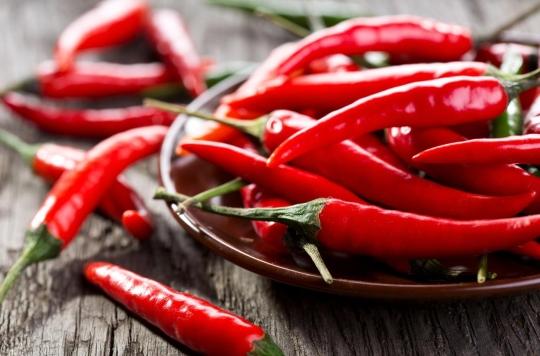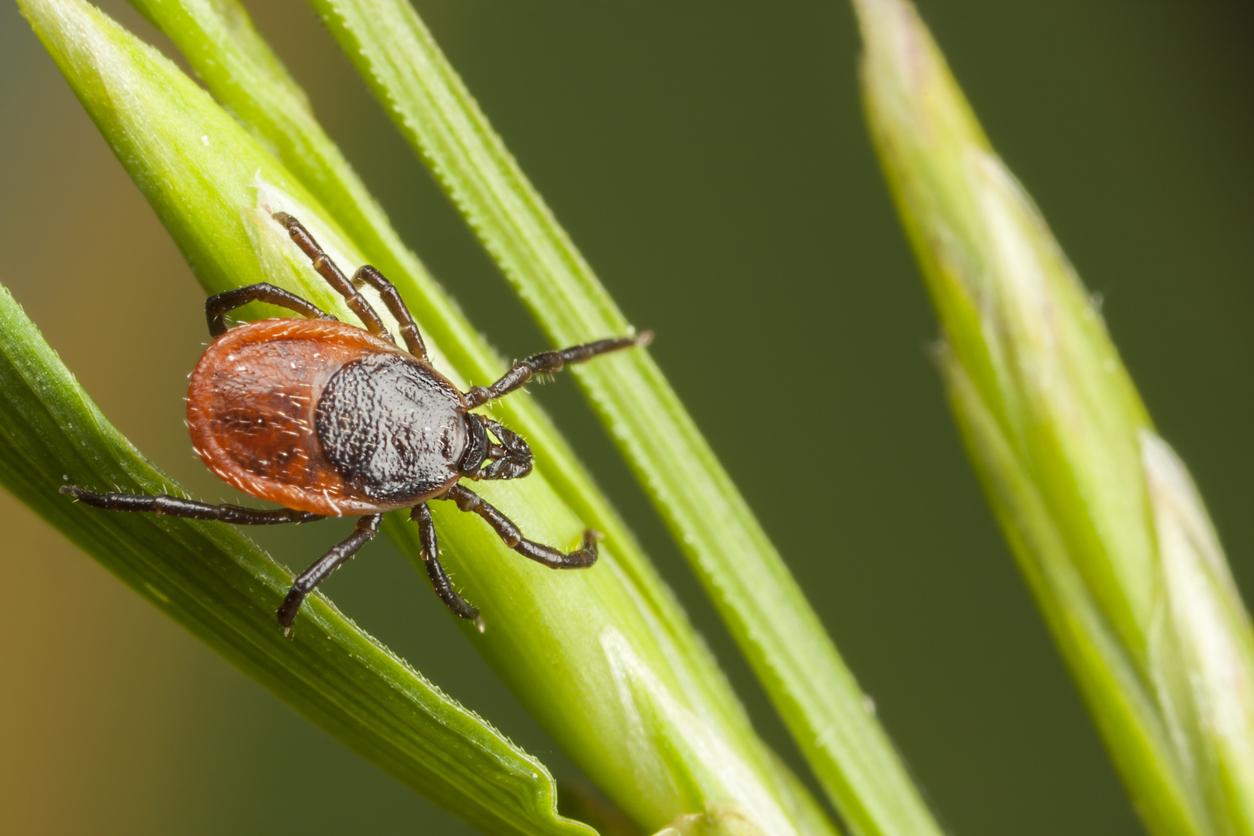One of the components of hot pepper, capsaicin, would have multiple virtues to treat sometimes serious ailments. But these effects are only validated in laboratory experiments…

- Capsaicin is the compound in hot peppers that produces the burning sensation when ingested
- Its properties to calm pain, limit infections and act as an antioxidant are observed in the laboratory
A cure for shingles, pain, infections and even cancer? Beyond its virtues to enhance the flavor of a dish, hot pepper could also preserve your health. This is what researchers from the University of Montreal suggest by highlighting the properties of capsaicin, one of the compounds of pepper, contained in its internal wall and which is the source of its most spectacular taste effects.
As a cream or ingested
According to these scientists, capsaicin can relieve arthritic pain, those associated with postherpetic neuralgia, one of the most common complications of shingles, when applied to the skin in the form of a cream. It could also, when ingested, develop an antioxidant and anticarcinogenic action.
Its application in the form of a cream can cause, as when swallowing it, a burning sensation … capable of relieving pain. “VSela may seem paradoxical, but it’s like fighting fire with fire: capsaicin activates a pain receptor located at the peripheral end of the sensory neurons which, under this effect, are emptied of all the mediators responsible for indicating the brain pain!“, explains Professor Couture of the Department of Pharmacology at the University of Montreal and specialist in pain receptors.
And when consumed with food, this molecule can influence the life cycle of cancer cells: it promotes apoptosis, programmed cell death, i.e. the mechanism whose dysfunction characterizes cells. cancer cells which, instead of being destroyed, survive and multiply.
Effects demonstrated… in vitro!
At last, a german study shows that capsaicin can treat bacterial infections resistant to antibiotics: it makes it possible to limit the doses of antibiotics when faced with a bacterial infection and thus contributes to reducing the risk of antibiotic resistance.
So, are you ready to burn your tongue and palate and have hot flashes in exchange for all these benefits? No precipitation : “Capsaicin is not a panacea, its virtues are often demonstrated in in-vitro studies and it has not been proven that they can be extended to humans; it is like this for all nutrients, they are only eaten as components of food and these are not drugs since their effects, even if they are real, are often only the result of a combination of factors“, warns Valérie Marcil, professor in the nutrition department of the University of Montreal.
















